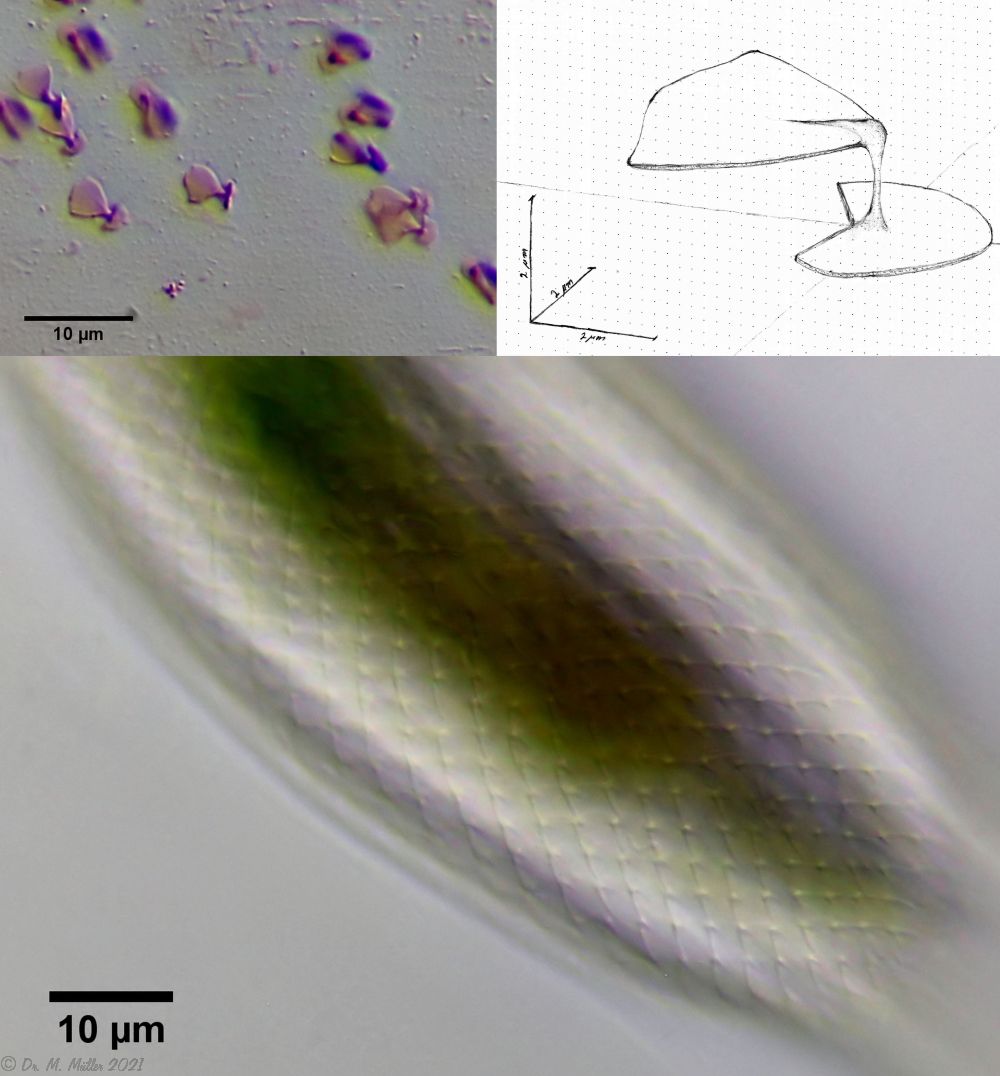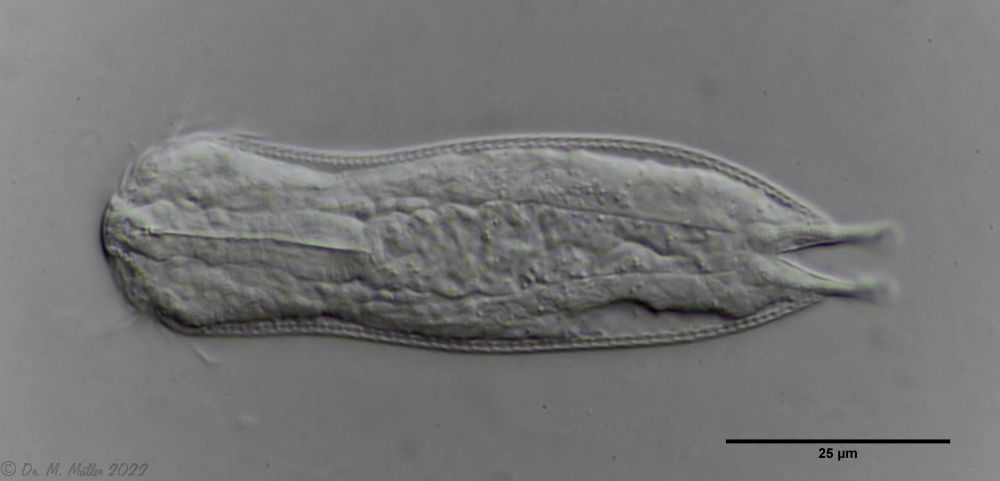Aspidiophorus
The genus Aspidiophorus is very easily recognized microscopically by the apparent “double contour” of the body. This double contour is produced by the typical style scales of this genus, which consist of a base plate that sits directly on the cuticle. From this base plate rises a thin peduncle, which carries at its end a - usually larger - un-spined terminal plate:
 typical scales of an Aspidiophorus, here A. squamulosus.
typical scales of an Aspidiophorus, here A. squamulosus.
This results in the typical double outer contour of the animals:

Diagnosis
- Body bottle shaped
- Furka normal
- Peduncle scales